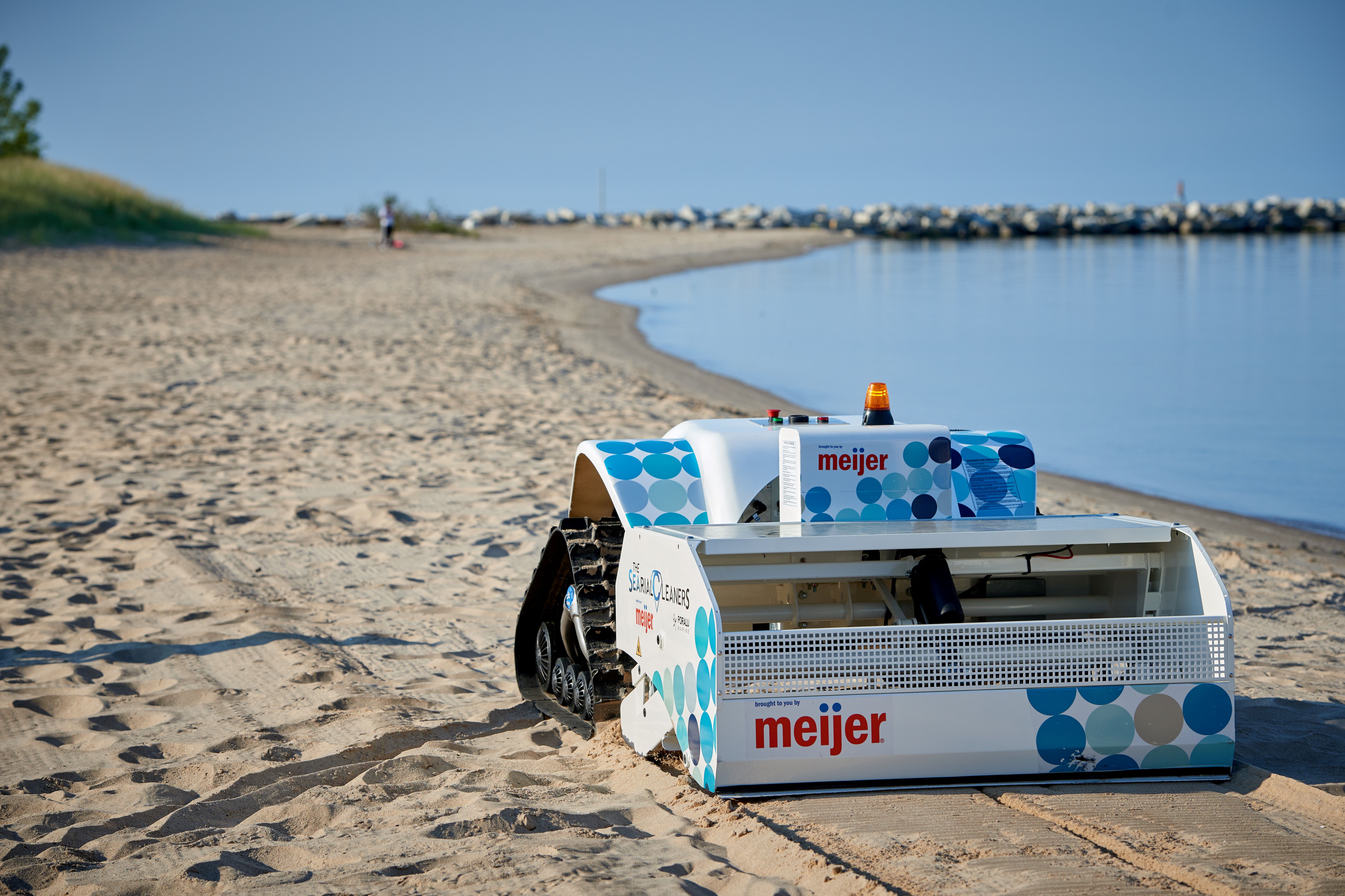Last year, Meijer was the first retailer to deploy innovative litter capture and clean-up drones drones to clean Midwest beaches. This year, we are sending more BeBots and Pixie Drones to collect even more trash. The devices will be sent to 18 locations, a mix of beaches and marinas in Michigan, Ohio and Wisconsin.
Everywhere they’re deployed, these drones leave cleaner beaches and water behind. Wrappers, cans, bits of plastic waste – even cigarette butts – all get scooped up and taken away. To see them in action is pretty cool, too.
“The beach cleaning drones are certainly eye-catching devices. This will be the first year that they’ll fully be deployed throughout the summer,” said Erik Petrovskis, Director of Environmental Compliance and Sustainability at Meijer.
Our partnership with the Council of the Great Lakes Region supports the single largest deployment of these types of eco-friendly and remote-controlled devices across multiple states in the Great Lakes, the largest surface freshwater system in the world.
The clean-up is happening in cooperation with our partners Grand Valley State University, Ohio State University, University of Wisconsin-Oshkosh and The Watershed Center at Grand Traverse Bay.
It’s the latest in our effort to protect the Great Lakes and rid them of litter, specifically plastics.
Additionally, we have installed Gutter Bins at nine stores near Great Lakes waterways. The Gutter Bins will capture and prevent trash, debris, microplastics and other harmful stormwater pollutants from flowing into these waterways. Each bin captures hundreds of pounds of pollution per year.
These efforts are making a big difference.
Last year, the technology, used through a partnership with GVSU’s Annis Water Resources Institute, collected more than 6,000 pieces of plastic at Pere Marquette Park in Muskegon, Mich.
The BeBot is a remote-controlled beach-cleaning robot that cleans 32,000 square feet per hour. It rakes through the sand without altering the beach environment, collecting plastic and other waste – bottles, cans, food wrappers, cigarette butts – for disposal and recycling.
The Pixie Drone is a remote-controlled water drone that can collect up to 200 pounds of material per use. It will navigate through marinas and other waterways to collect plastic litter and other waste debris floating on the surface.
This year, we’re providing four pairs of the devices, which come with trailers so they can move around to more locations.
“Cleaning up these bits of weathered plastic is very challenging, and these devices do it very effectively,” Erik said. “But on top of that, it’s raising the awareness of the beach among the public. When they see the devices, they’re curious, they ask, and then they become informed of plastic issues in the Great Lakes.”
Since 2022, the BeBots and Pixie Drones were funded by our $1.5+ million donation to the charitable arm of the Council of the Great Lakes Region in the United States.. The deployment of these devices is part of the expansion of the Great Lakes Plastic Cleanup’s plastic capture and recovery effort, an initiative started in 2020 by the Council of the Great Lakes Region and Pollution Probe.
We’re also working on numerous store-level projects that impact the Great Lakes. Along with the installation of the Gutter Bin stormwater trash collection systems at select Meijer supercenters, we’ve invested in green infrastructure projects, such as retrofitting the parking lots at our Traverse City and Benton Harbor supercenters.
“These projects build upon each other and are part of our role as stewards of the Great Lakes,” said Erik, who’s worked to expand our corporate-wide sustainability program since joining Meijer in 2014. “The Great Lakes are an area of immense value, and we are proud to be hands-on in the protection of these local waterways.”
